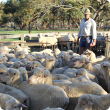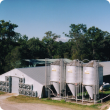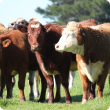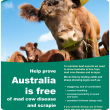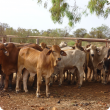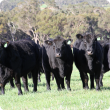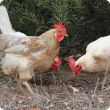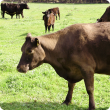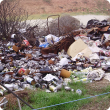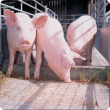Services
Search in Services
Filter services by topic
- (-) Remove Livestock & animals filter Livestock & animals
- Pests, weeds & diseases (87) Apply Pests, weeds & diseases filter
- Biosecurity & quarantine (85) Apply Biosecurity & quarantine filter
- Biosecurity (81) Apply Biosecurity filter
- Livestock biosecurity (79) Apply Livestock biosecurity filter
- Livestock health & diseases (76) Apply Livestock health & diseases filter
- Diseases (76) Apply Diseases filter
- Livestock species (74) Apply Livestock species filter
- Livestock disease surveillance (72) Apply Livestock disease surveillance filter
- Livestock management (45) Apply Livestock management filter
- Sheep (27) Apply Sheep filter
- Beef cattle (26) Apply Beef cattle filter
- Climate, land & water (23) Apply Climate, land & water filter
- Emergency animal disease preparedness (21) Apply Emergency animal disease preparedness filter
- Crops (20) Apply Crops filter
- Dairy cattle (18) Apply Dairy cattle filter
- Management & reproduction (16) Apply Management & reproduction filter
- Feeding & nutrition (15) Apply Feeding & nutrition filter
- Pigs (13) Apply Pigs filter
- Poultry & birds (11) Apply Poultry & birds filter
- Goats (8) Apply Goats filter
- Control methods (8) Apply Control methods filter
- Horses (7) Apply Horses filter
- Livestock movement & identification (7) Apply Livestock movement & identification filter
- Chemicals (7) Apply Chemicals filter
- Land use (5) Apply Land use filter
- Grains (5) Apply Grains filter
- Climate change (5) Apply Climate change filter
- Climate & weather (5) Apply Climate & weather filter
- Veterinary chemicals (4) Apply Veterinary chemicals filter
- Wildlife biosecurity (4) Apply Wildlife biosecurity filter
- Small landholders in Western Australia (4) Apply Small landholders in Western Australia filter
- Livestock research & development (4) Apply Livestock research & development filter
- Preventing residues (4) Apply Preventing residues filter
- Residues in livestock (4) Apply Residues in livestock filter
- Horticulture (3) Apply Horticulture filter
- Food, export & investment (3) Apply Food, export & investment filter
- Pasture species (2) Apply Pasture species filter
- Stockfeed (2) Apply Stockfeed filter
- Pasture management (2) Apply Pasture management filter
- Pastures (2) Apply Pastures filter
- Irrigated crops (2) Apply Irrigated crops filter
- Emergency response (2) Apply Emergency response filter
- Genetics & selection (2) Apply Genetics & selection filter
- Food & beverages (1) Apply Food & beverages filter
- Grains Research & Development (1) Apply Grains Research & Development filter
- Export services (1) Apply Export services filter
- Bees (1) Apply Bees filter
- Agribusiness Food & Trade (1) Apply Agribusiness Food & Trade filter
- Carbon farming (1) Apply Carbon farming filter

